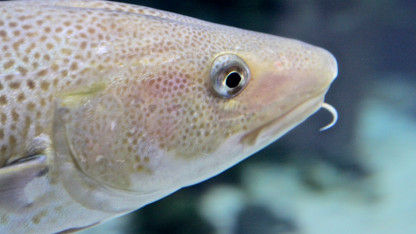“Cod – lean and fatty” is a research project studying how diet affects the behaviour of cod.
In order to understand how the ocean’s ecosystem functions, it is important to know how the various animal species live. What do they eat and how much? How does the composition of their diet affect their behaviour? Often, a few very important fish species form the link between plant plankton and the top of the food chain. In the Øresund, this connecting link is herring, and at the top of the food chain are larger cod.
The size of the herring population in the Øresund varies throughout the year, which means that the diet of cod consists almost 100% of herring at certain times of the year and of more varied ingestants at other times of the year. There are indications that cod do not benefit fully from the extremely fatty herring, that this surplus of very fatty prey (herring) leads to poorer growth (the junk food theory) and that a lean diet consisting of crab is actually more suitable for the cod’s growth. We will also study the behaviour of cod. Will the junk-food-eating cod become more stationary or perhaps even stop eating altogether?
The National Aquarium Denmark – Den Blå Planet has test facilities where we can raise cod, which are fed the two types of diets. Under these controlled conditions, unlike in nature, it is possible to know with certainty exactly what the cod have eaten. There are indications that there are significant variations in what a cod eats during the course of the year and that the composition of its diet has a significant effect on its behaviour. One group of cod is fed a lean diet based on crab while another group is fed a fatty diet based on herring.
Duration: 2015.
Partners: Mikael van Deurs, Postdoctoral Fellow, Lund University (MvD has received funding from the Danish Council for Independent Research – DFF – 4002-00114).

